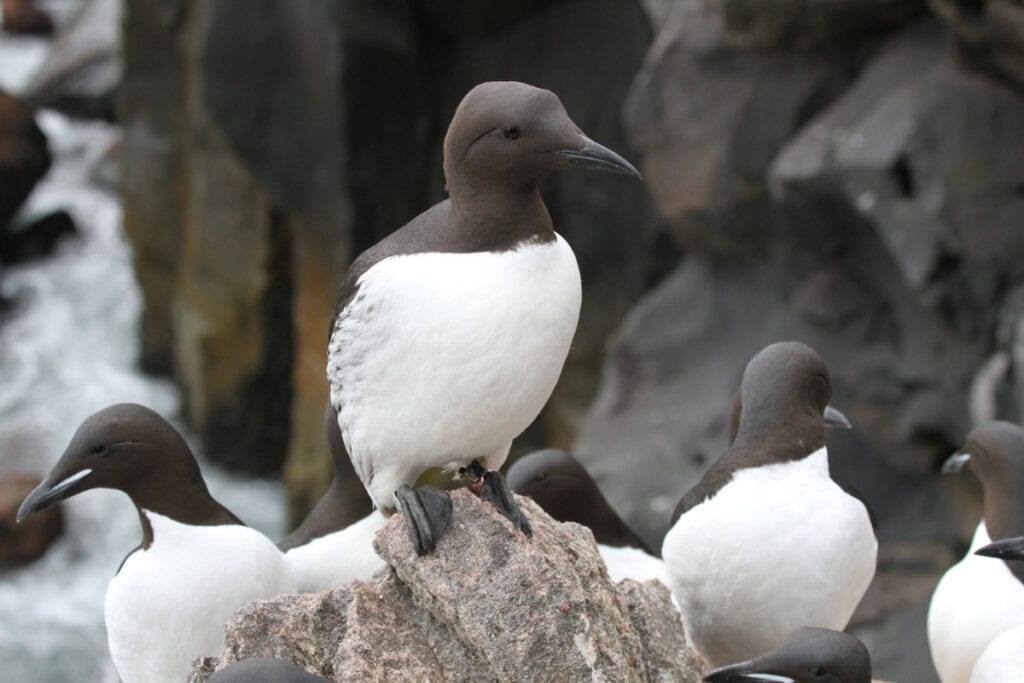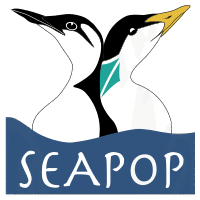Light loggers and stable isotopes contribute to identify moult locations
Seabird distribution and diet during at-sea moult are often unclear. A new study uses light loggers and stable isotopes in feathers to identify distribution and diet in common guillemot, razorbill and Atlantic puffin during moult.
Most seabirds moult feathers outside the breeding season when they are at sea. Moulting is a very energy-demanding process, which can result in high mortality rates. During feather moult, the auks are flightless, making them particularly vulnerable to changes in the environment. It is therefore important to acquire knowledge about the auks’ spatial and trophic ecology during this process. In this study, researchers used data from bird-borne light loggers and stable isotope analyses. Coupling these two types of data enabled a quantification of species-specific foraging locations and individual trophic variability during feather moult in three auk populations breeding on the Isle of May, Scotland – common guillemots, razorbills and Atlantic puffins.
Read the article:
The study shows that inferred foraging areas during moult varied between species but also depended on the types of feather analyzed. Puffins likely remained off the east coast of Scotland, razorbills along the east coast of England and into the southern North Sea and guillemots within the southern North Sea.

Photo: Erlend Lorentzen
Estimates of individual trophic position showed that guillemots consistently foraged at higher trophic levels than razorbills and puffins. Combining the two data types increases knowledge of foraging area and diet in seabirds outside the breeding season during moult. This kind of information is very valuable both for decisions regarding development of offshore constructions, and in developing effective conservation strategies regarding anthropogenic activities, such as fisheries.
Contact persons: Hallvard Strøm (NPI) and Kjell Einar Erikstad (NINA)
